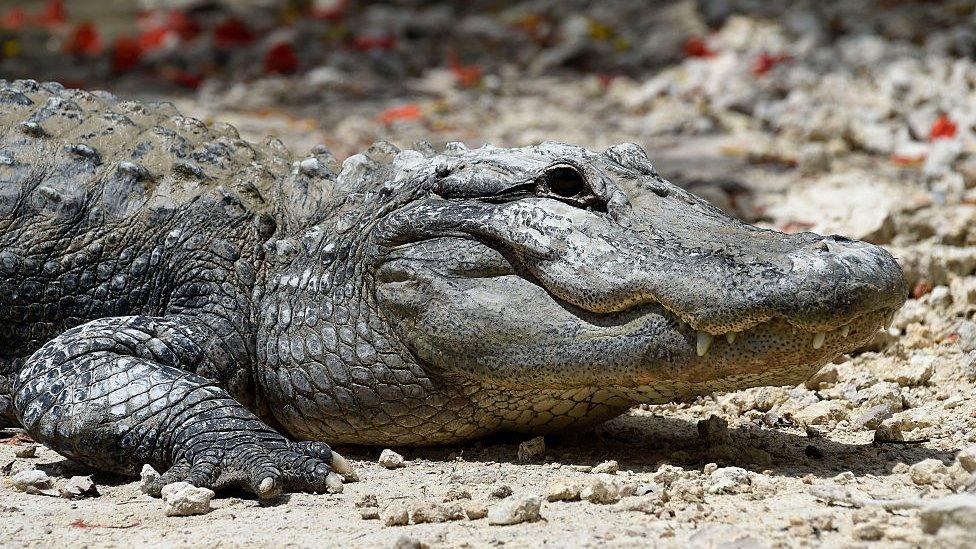Alligators survive the cold by 'turning into ice cubes'
- Published
- comments
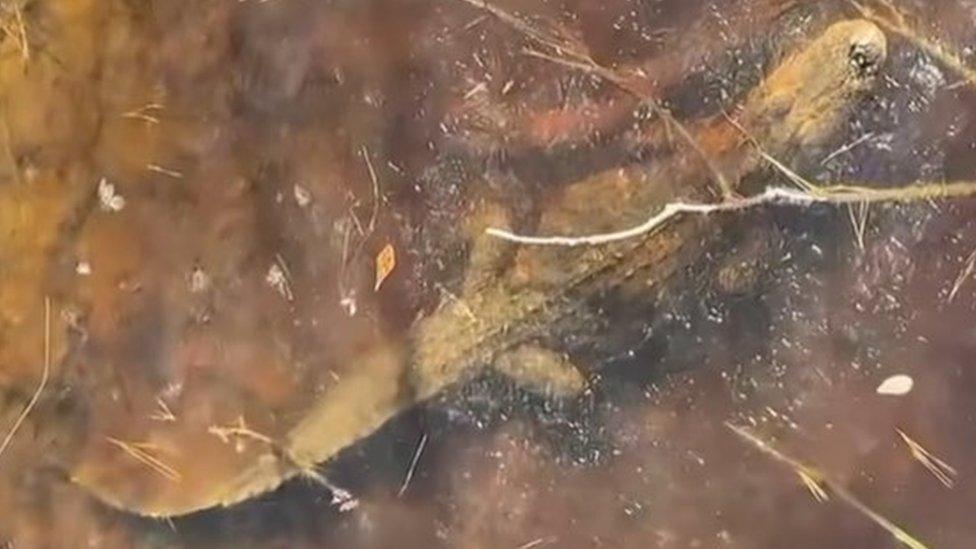
Can you spot the "frozen" alligator in this pond?
Many animals don't particularly enjoy cold weather, but alligators in the US have an unusual solution to surviving freezing temperatures.
In the states of North Carolina and Texas, the animals have been getting through a cold snap by suspending their bodies in pond water and letting it freeze solid around them.
Only their snouts and front teeth can be seen above the surface of the ice, allowing the alligators to breathe while they wait for the water to thaw.
Several alligators have been spotted "frozen" inside the giant pond-shaped ice cubes at the Swamp Park, a tourist attraction and alligator sanctuary near Ocean Isle Beach in North Carolina.
Another alligator was seen doing the same thing in an icy pond at the Gator Country rescue centre in Beaumont, Texas.
Both states have experienced freezing temperatures recently, of below 1 degrees Celsius in the past week and minus 8 degrees Celsius in North Carolina.
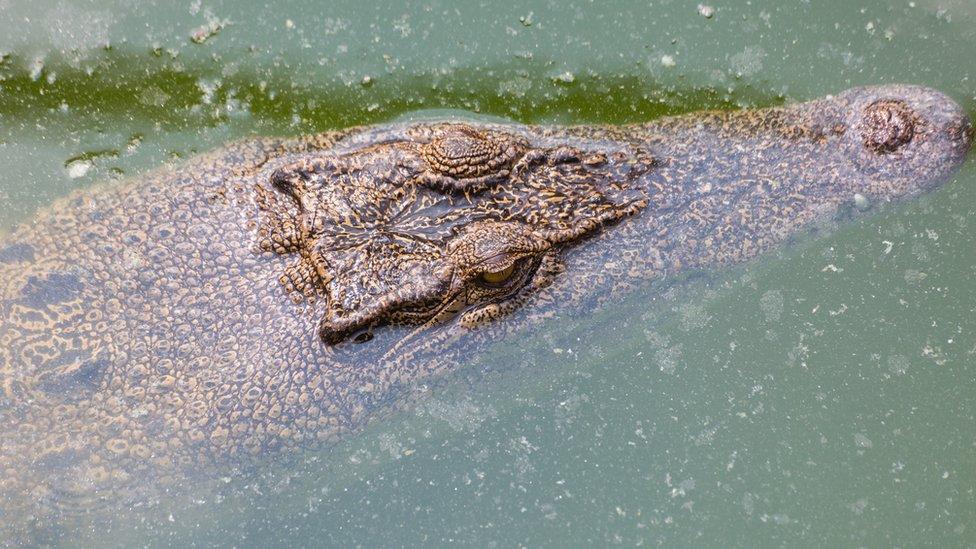
Why do alligators make themselves into giant ice-cubes?
When temperatures drop below freezing, alligators and other reptiles can enter a state known as brumation - which is similar to how some mammals, warm blooded animals, hibernate.
During hibernation an animal's heart rate and breathing slows down and their body temperature decreases to help them use less energy.
When ice crystals start to form, the alligators' metabolism slows down and their tired bodies gradually become suspended in the frozen water with their eyes closed.

They "instinctively tilt their nose up" so it sticks out of the water to stop them from suffocating, a Swamp Park spokesperson said.
The water around them solidifies and suspends them until temperatures are more comfortable, and the water temperatures increase.
But unlike in hibernation, alligators and other reptiles don't fall into a deep sleep during brumation, they still have periods of activity allowing them to drink.
During brumation, it's thought an alligator's heart can slow down to as few as three beats per minute.
- Published2 February 2024
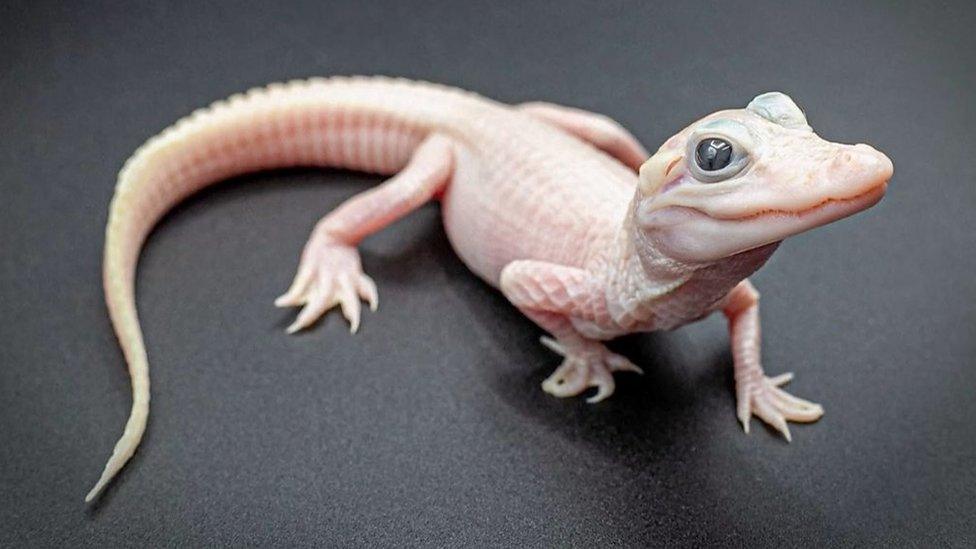
- Published21 February 2023
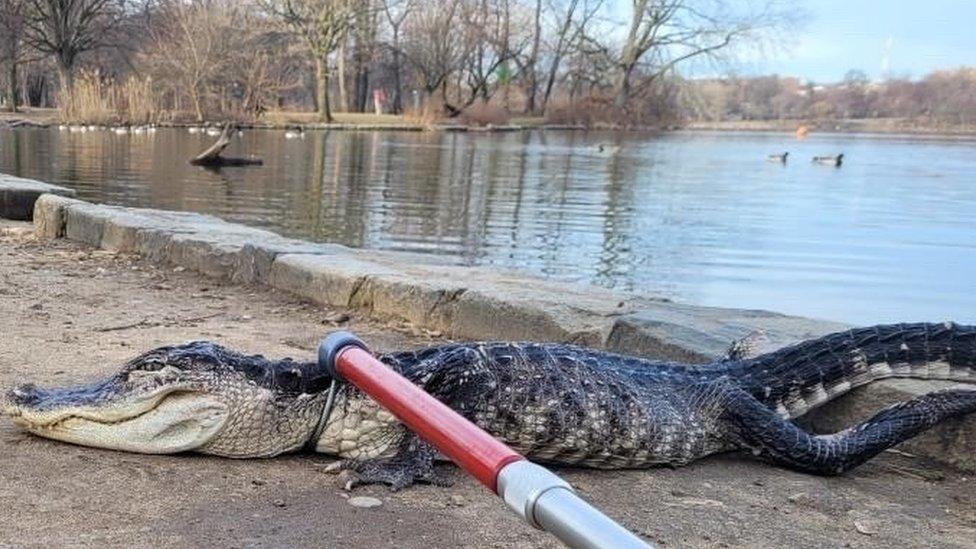
- Published25 September 2019
